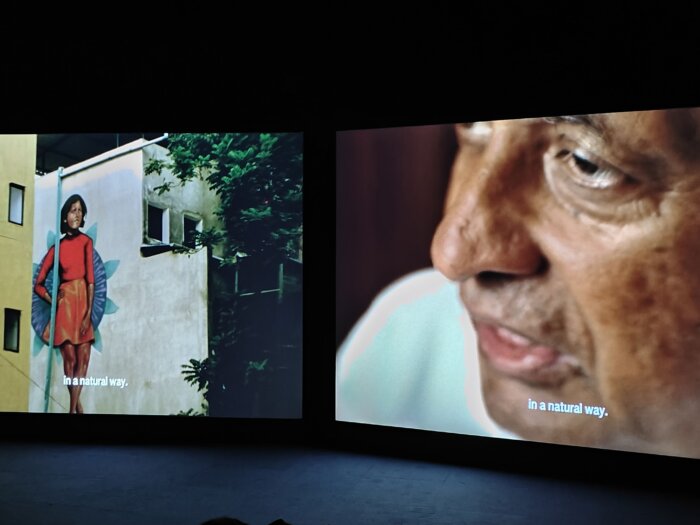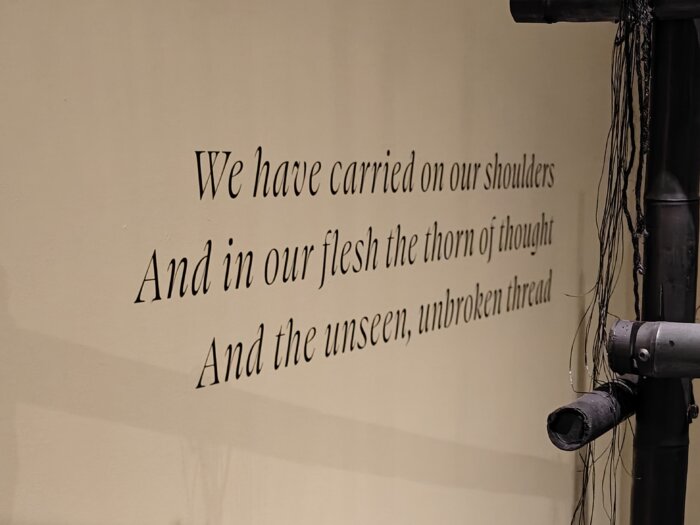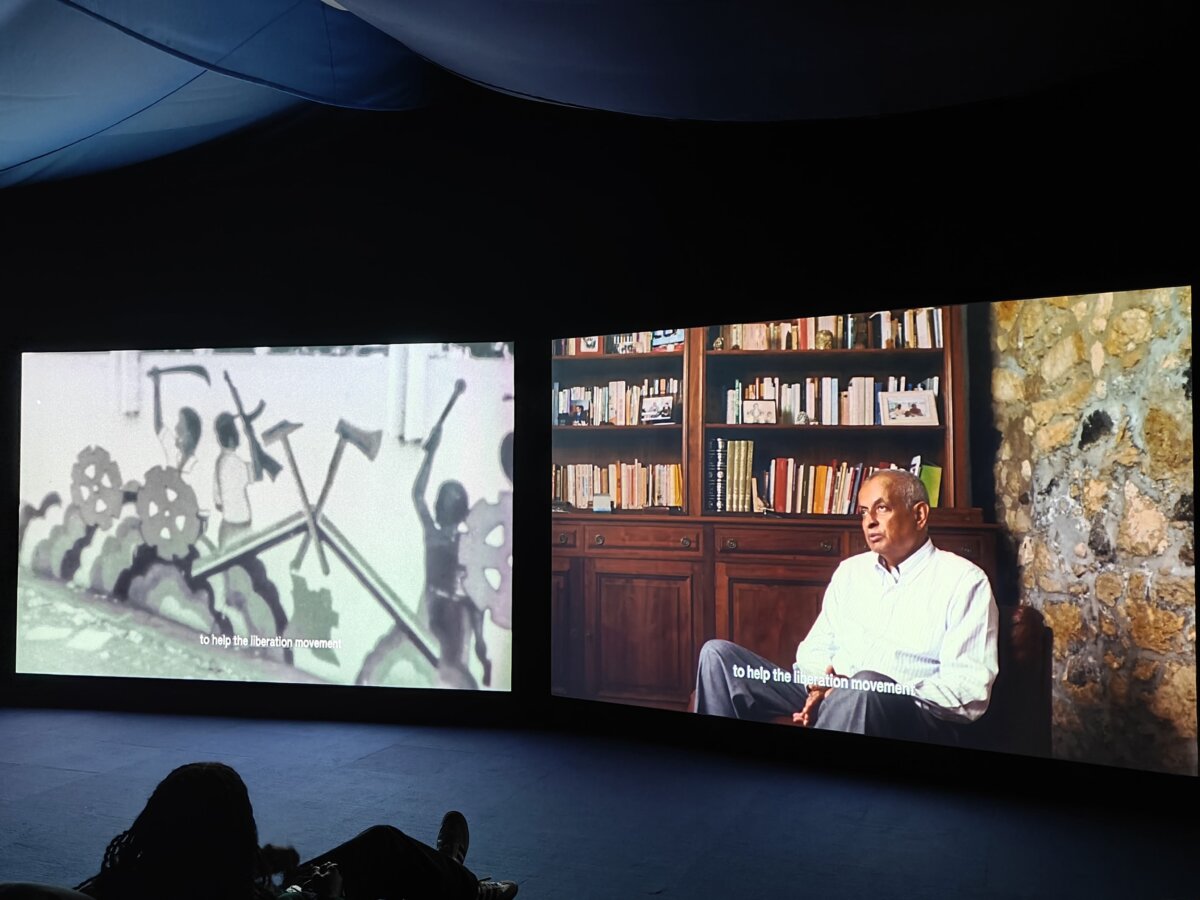Artist Suneil Sanzgiril tells the story of his family’s struggle against colonialism in “Here the Earth Grows Gold” at the Brooklyn Museum.
Photo by Ximena Del Cerro
Multimedia artist Suneil Sanzgiri has a message to share from a very personal perspective — colonialism isn’t over, and it’s happening all over the world – just like it happened to his family back in the 60s in Gao, India. His latest body of work, “Here The Earth Grows Gold,” exhibited at the Brooklyn Museum, touches on anti-colonialism, nationalism, and the identities that are created from displacement.
Sanzgiri’s work is a testament to his family’s legacy of resistance in Goa, an area that was under Portuguese occupation for over 450 years until its independence in 1961. He creates films that explore the ideas of ancestry and heritage, using recordings from interviews with his father, footage from the times of fighting, scenes of Portuguese soldiers deployed in Goa to maintain colonial order, Indian cinema imagery and drone shots of modern-day Goa.

“In 2017, on his 75th birthday, my father sat down with his three children and started narrating the story of his life, his childhood in Goa, India in-depth, what life was like under the grip of Portuguese colonialism in the region,” the artist wrote in a piece for the Brooklyn Museum.
The occupation lasted for more than 450 years. Born in 1942, the Sanzgiri’s father witnessed both the independence and subsequent partition of India by the British— and the eventual liberation of Goa from Portugal in 1961.
Women play a crucial part of the history the exhibit tells. The artist learned, through his father, that his family on his mother’s side were anti-colonial freedom fighters for generations.

“They used poetry as a way to spread their opposition,” said Sanzgiri. “Some of them were poets, and they used poetry as a way to build national sentiment, so there’s a lot of poetry in the…
Read the full article here

Leave a Reply